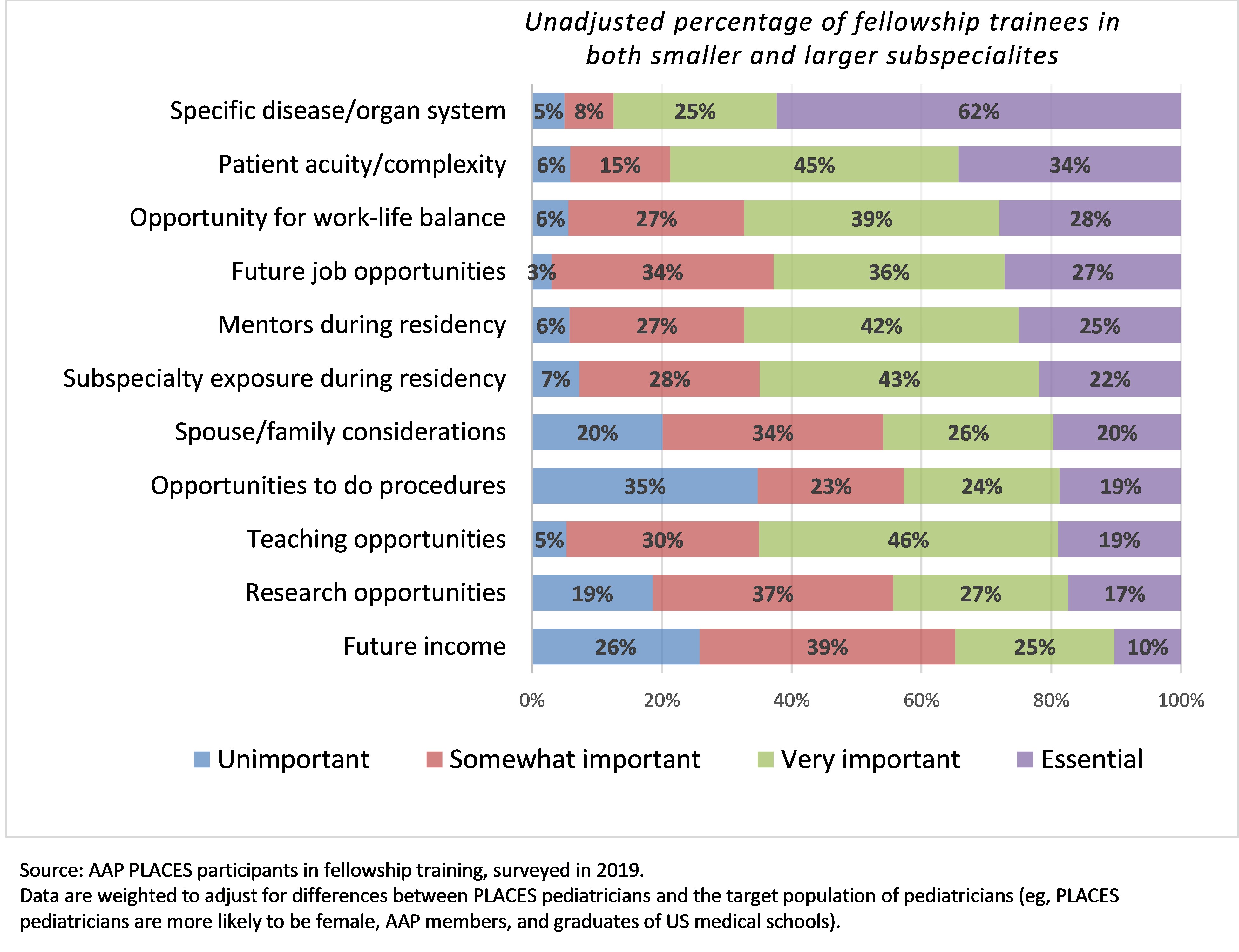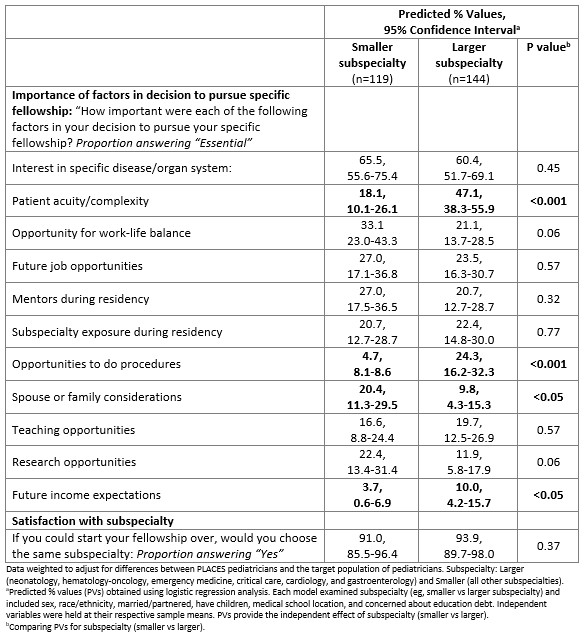Byrne B, Gottschlich E, Frintner M
Presented at the 2023 Pediatric Academic Societies Annual Meeting
Background: Choosing career paths can be difficult decisions for residents contemplating fellowship training. Limited resources are available to guide their choices.
Objective: Among fellows currently in training, describe factors they report influenced their subspeciality decision and satisfaction with subspecialty choice. Examine differences in selection factors and satisfaction by subspecialty group.
Methods: We analyzed national weighted data from the AAP Pediatrician Life and Career Experience Study (PLACES). Analytic sample included pediatricians surveyed in 2019 while in fellowship training(n=263). Given sample size limitations, responses for each subspecialty could not be examined but groups were compared: a) larger (neonatology, hematology-oncology, emergency medicine, critical care, cardiology, gastroenterology) and b) smaller (all other subspecialties). Outcomes examined included 1) importance of factors in decision to pursue specific fellowship (essential vs very, somewhat or unimportant) and 2) satisfaction with subspecialty choice (Yes vs no, would choose a different subspecialty or not to specialize). Multivariable logistic regression estimated the independent effect of subspecialty group (smaller vs larger) for 1 and 2 above; models also included sex, race/ethnicity, married/partnered, children, medical school location, and concern about debt. We present predicted % values for the subspecialty groups.
Results: Among PLACES fellows in training, 62% reported specific disease/organ system was essential in the decision to pursue their specific subspecialty (Figure). One-third reported that patient acuity/complexity was essential; 1 in 4 reported work-life balance, job opportunities, and mentors were essential in their decision. Adjusting for trainee characteristics, fellows in larger subspecialties were more likely than those in smaller ones to report patient acuity/complexity, opportunities to do procedures, and future income were essential (Table). They were less likely to report spouse or family considerations were essential. Nine in 10 fellows reported they would choose the same subspecialty again, both those in larger and smaller subspecialties.
Conclusion: Factors specific to different subspecialties such as disease focus are essential when contemplating fellowship training. Patient acuity and doing procedures is especially important for fellows in larger subspecialties (eg, neonatology, hematology-oncology, emergency medicine, critical care, cardiology, and gastroenterology). Nearly all fellowship trainees are satisfied with their subspecialty choice.
Figure 1. Importance of factors in decision to pursue specific subspecialty fellowship

Table 1. Factors fellows report as important in their subspecialty choice and current satisfaction with their subspecialty: smaller vs larger subspecialties

Last Updated
05/22/2023
Source
American Academy of Pediatrics